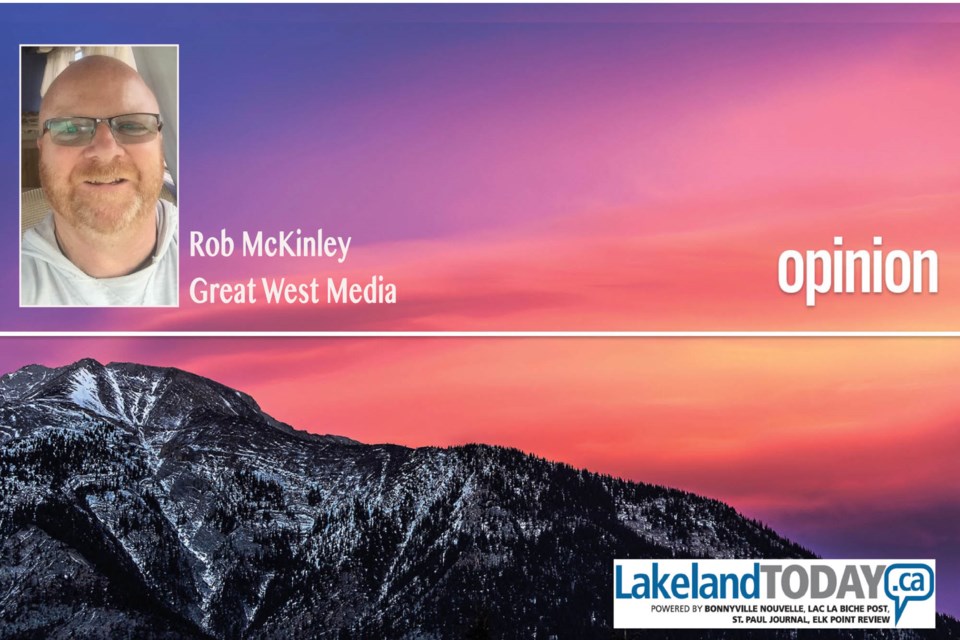What's in a number? Your future, it would seem. And most troubling is that number doesn't have to be very high to sculpt that future.
The current number of people who identify as Métis in Alberta is around130,000. Of those, between 45,000 and 50,000 are said to be current members of the Métis Nation of Alberta. Of that membership into a government-structured Alberta society, 15,000 — about 12 per cent of the province’s overall Métis population have just voted to accept a new Métis Nation within Alberta Constitution that will blanket the entire province, affecting all four million Alberta residents.
Breaking it down only in numbers, that's a little number affecting a big one.
But it's not just about the Métis Constitution. That document has simply spotlighted what is fast-becoming a tipping point in the foundation of politics and democracy... the few representing the many.
In the Lakeland, we don't have to look much further than recent municipal elections.
The Town of St. Paul recorded an abysmal 30 per cent voter turnout in the 2021 town election. And that's 30 per cent of eligible voters, and not everyone who will be affected by the decisions of those elected. In the Town of Bonnyville, the representation by population is even worse, with just 23 per cent of eligible voters — just 1,200 people out of a total town roster of 6,400 — selecting candidates to operate their day-to-day lives.
In Lac La Biche County, despite what is said to be a large turnout of 56 per cent of the eligible voters, one councillor was elected by just 83 people to be part of a nine-member council that accounts for $1 million in annual expenses. In the MD of Bonnyville, just 4,000 of roughly 10,000 eligible voting residents took part in the democratic choice to select one of two mayoral candidates.
Another recent example of the few running the many is Alberta Premier Danielle Smith. Currently in the midst of tabling legislation to create more 'sovereign' powers for Alberta — or rather the government ruling the province — Smith was selected by 53 per cent of 85,000 United Conservative Party voters to be the leader of those four million Albertan's mentioned earlier. In essence, a person put into a position by one and half percent of the overall population, is now able to craft legislation that affects everyone.
Smith even used the foundation of that democratic system — despite the obvious lack of public buy-in — to defend her troubled Sovereignty Act in a televised interview on Sunday night.
"The intention has always been, to make sure that anything we do, any action that we take has been fully debated by those who are represented to represent the interests of the people of Alberta," she said — making a mockery of every Albertan who is sitting back and watching it happen.
Is it voter apathy? Sure, maybe that's part of it. We often think we can't do anything about what 'they' are going to do. But that is the exact opposite of what this system of elected representatives is based on — and the exact thing some may be taking full advantage of. 'They' are 'us' ... or at least they should be.
Call it the Sovereignty Act, the Métis Nation within Alberta Constitution, or the new funding structure for recreation facilities in your community — these might all be great things, and worth our investment. Or they're not. But with just a fraction of those affected actually taking an interest in what is happening around them... when it's happening... we're letting a few people change all of our lives.
So really, what's in a number?
You.
This opinion was updated on Dec. 8 to correct data information on the number of people identifying as Metis in Alberta. The 2021 Stats Can data shows about 130,000, not 145,000 as was incorrectly stated in the original version of the opinion piece. Apologies for the error.



